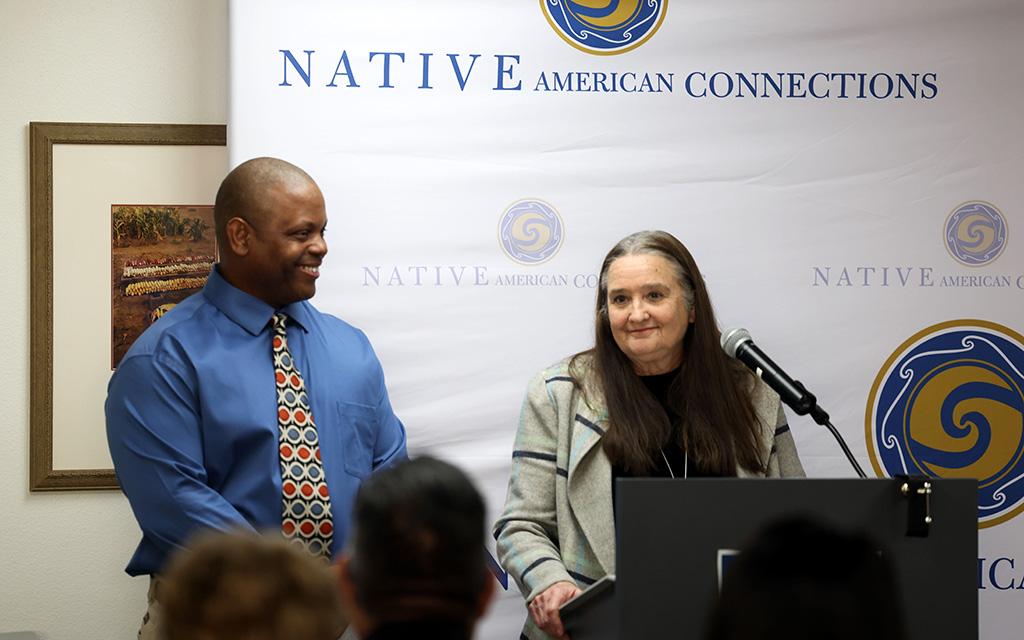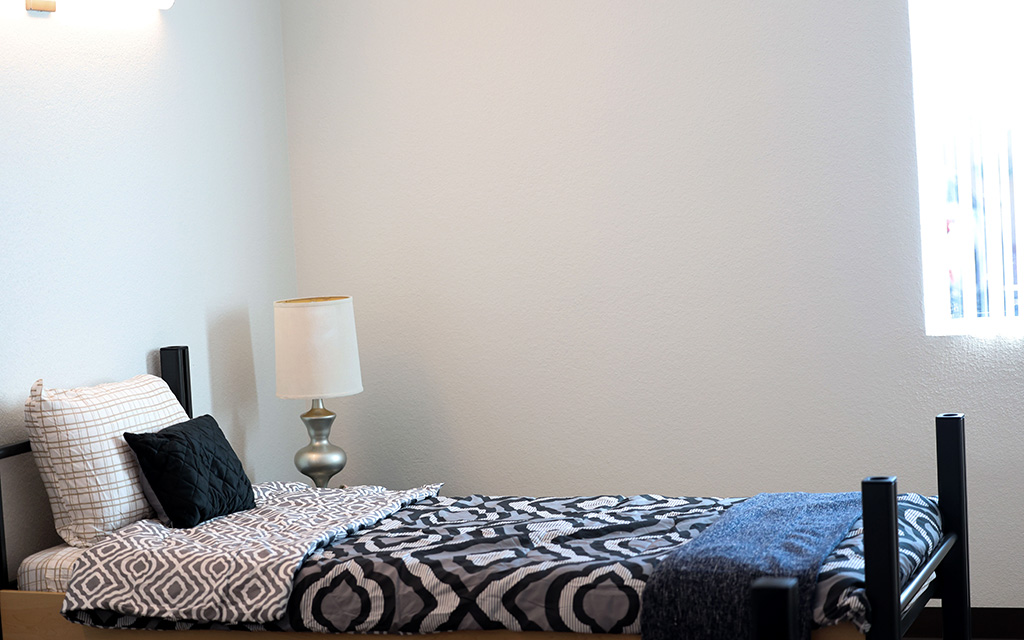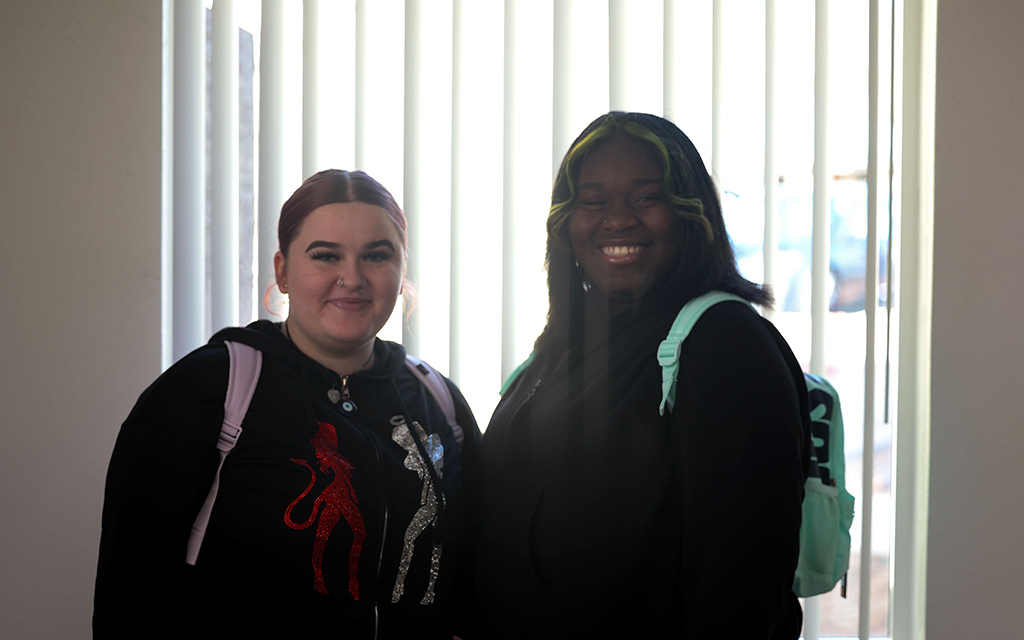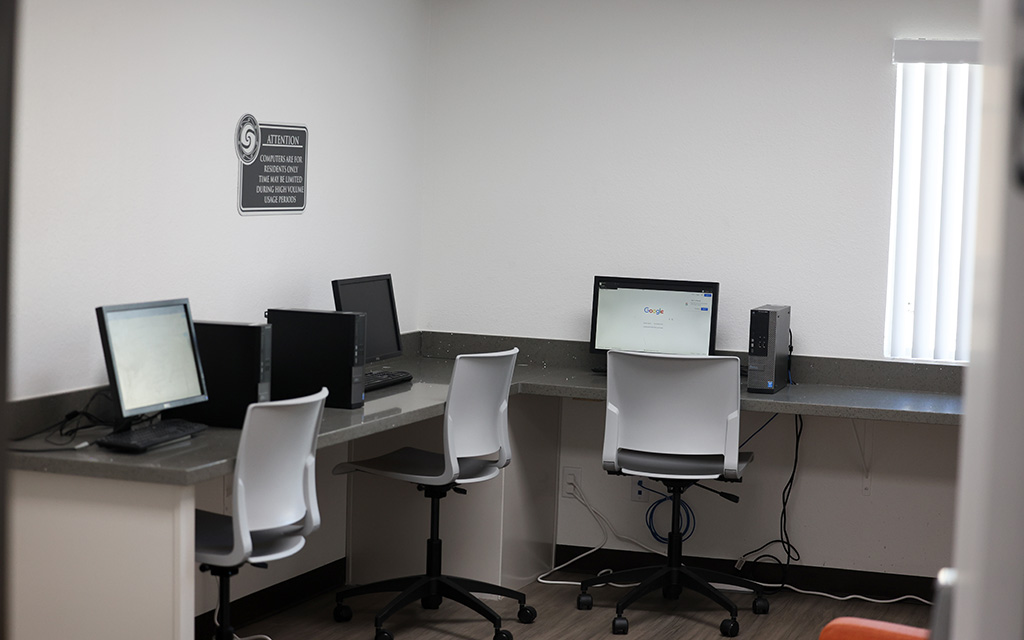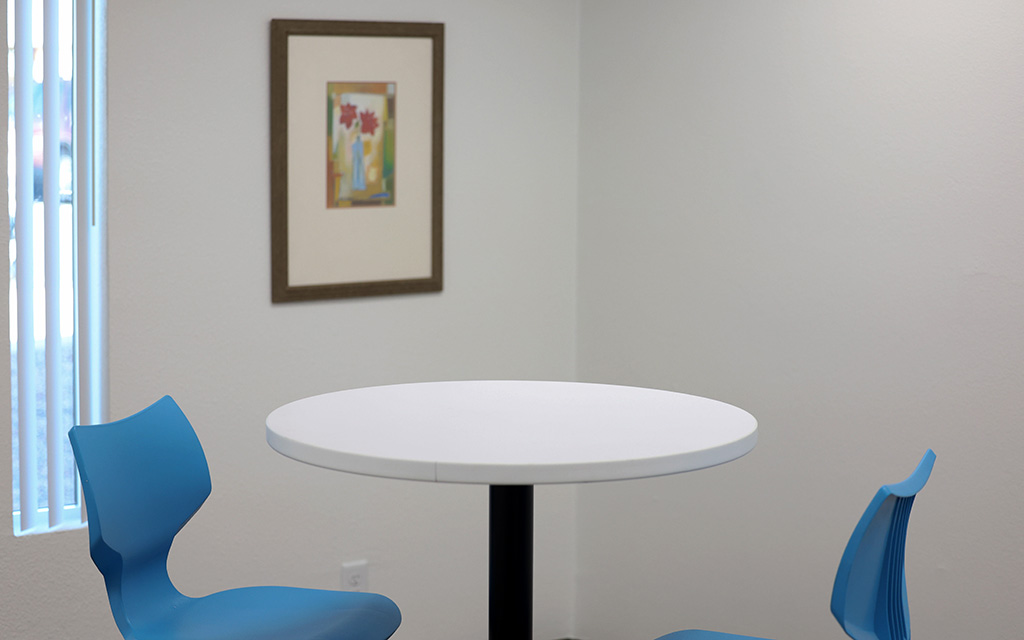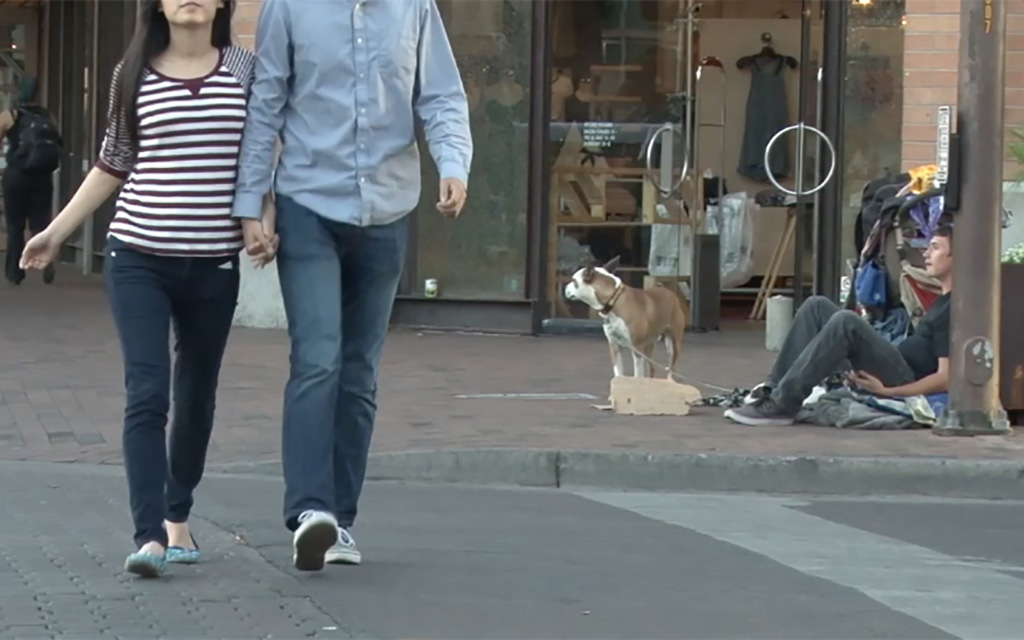SURPRISE – Expanding its reach beyond Phoenix, Native American Connections has opened a second transitional housing facility and program for homeless youth in Surprise.
The HomeBase Youth Services center officially opened last week with seven residents already settled in, demonstrating the dire need for youth emergency housing. The facility, previously used as a retirement home, can house up to 40 young men and women.
Kayla Harcharik and Kumarri Owens were among the early residents at HomeBase Surprise. They were assigned case manager Chris Madden, who has already helped them adjust to their new environment and is advising them on finding a job and permanent housing.
“He helps you get a job, manage your money and look out for you,” Owens said of Madden. “He makes sure you’re doing what you gotta do and be independent but still support you.”
Arizona saw the largest increase in the number of homeless youth in the nation last year, adding 284 unaccompanied youth, for a 44% increase from 2020, according to the U.S. Department of Housing and Urban Development’s 2022 Annual Homelessness Assessment Report to Congress.
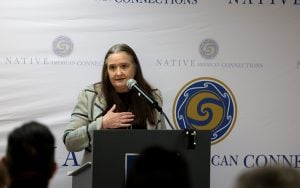
Diana Yazzie Devine, CEO of Native American Connections, speaks at the opening of HomeBase Surprise on Feb. 2, 2023. (Photo by Logan Camden/Cronkite News)
The Maricopa County Association of Government’s Point-in-Time Homeless Count in January 2022, the most recent for which data is available, identified more than 9,000 people in Arizona as homeless. Of those, 749 were 18 to 24 years old.
Diana Yazzie Devine, CEO of Native American Connections, said the nonprofit realized there was a considerable gap in services for homeless youth throughout the Valley, not just in central Phoenix. The organization’s mission is to improve the lives of individuals and families through behavioral health, affordable housing and community development services. While it supports Indigenous people in need, its services are for people of all races and ethnicities.
Unsheltered youth are more at risk of being trafficked, exploited and addicted, Yazzie Devine said.
“Some youth are really disconnected from their family and other support systems, and they’ve experienced a lot of trauma,” she said. “It makes them vulnerable for trafficking and for other domestic violence abuse. They’re just very vulnerable on the street and (are) being approached for victimization or for drugs.”
When a teen comes to the center, they meet with a case manager to determine what services they need and together the teen and the case manager come up with a plan of action. Daily check-ins with their case manager help residents maintain a sense of stability and continue progress toward their overall goal of achieving permanent housing and an education, said Michael Lafitte, director of HomeBase Surprise.
To be part of the program, a teen must be enrolled in school or working. HomeBase Surprise also trains residents on skills such as resume building and interview etiquette.
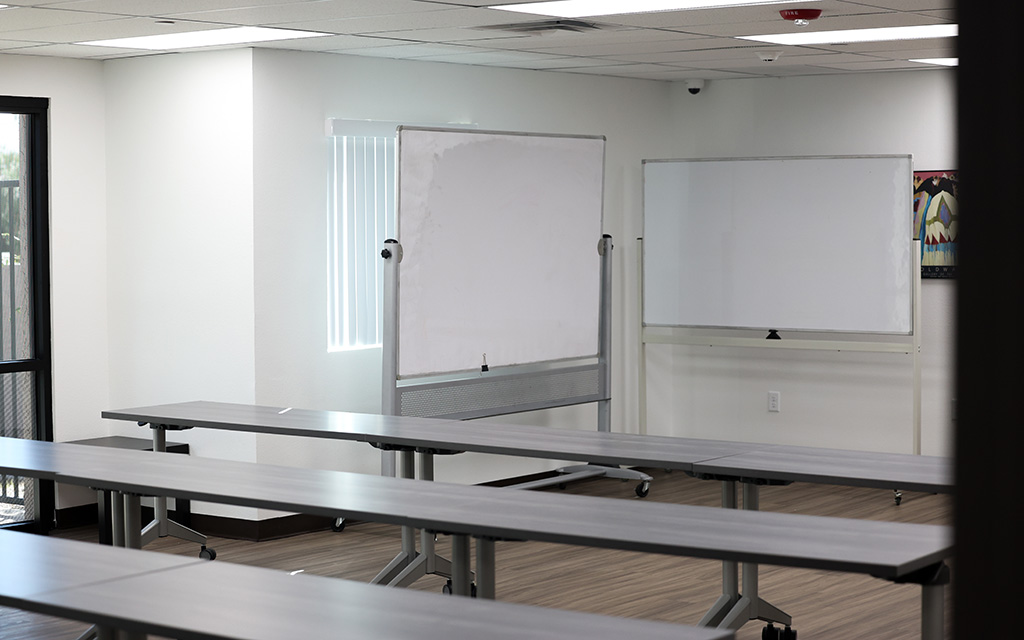
A classroom and meeting area at HomeBase Surprise. (Photo by Logan Camden/Cronkite News)
“The program really focuses on education, employment and saving,” Lafitte said. “We teach independent living skills so that once they transition from the shelter, they’re able to be self-sufficient and then usually within a three- to four-month time period, they’re able to transition into permanent housing.”
He said he hopes the new center will mirror the success of the Phoenix program. “We’re going to have a lot of opportunities to partner with other organizations out here in Surprise, and I’m looking forward to doing that,” he said.
The city of Surprise “really welcomed us in and we want to be a part of the community and work together to end the growing problem (of homeless youth) that we’re seeing all over our community,” Yazzie Devine said.
Funding for the expansion in Surprise came, in part, from the Arizona Department of Housing. Native American Connections received $7.8 million as part of the American Recovery Act. The nonprofit also relies on other grant money and donations.
Each room at HomeBase Surprise has two beds, a private bathroom and a shared closet. The rooms come with linens for each resident that have been donated to the center. When asked what residents need to bring with them to the facility, Edison Brown, donor and volunteer relations manager said, “Nothing, just themselves.” The facility has an open courtyard, game room, commercial kitchen, conference rooms, computer lab and classrooms.
The facility also has a drop-in center that allows any unhoused youth to come in and do laundry or take a shower. The youth are always encouraged to talk to a case manager if they are doing a drop-in and to see the place in hopes that it might be a good fit for them to enroll in the program, Yazzie Devine said.
The Surprise facility expects to help between 100 and 200 youth experiencing homelessness in its first year.
Native American Connections has operated a transitional housing program near Ninth Street and Indian School Road in Phoenix since 2010. HomeBase Youth Services teaches at-risk and homeless youth to live healthy and independent lives. Its vision is “No kid sleeps on the streets” and its message to youth is that all are welcome and respected.
Services include temporary housing, weekly medical screenings, behavioral health services, case management and job training. The age range is 18-24 years old, and the typical stay in transitional shelter is from four to six months.



